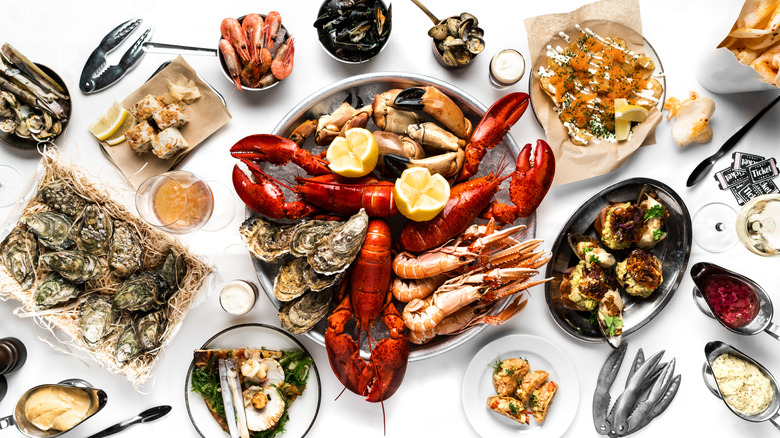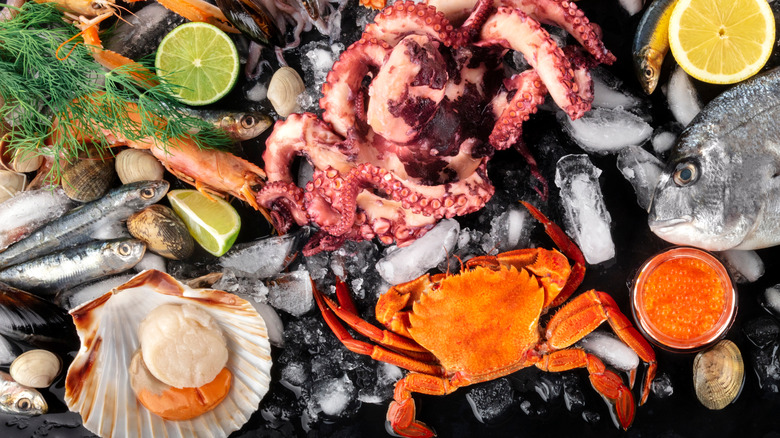Shellfish Can Be More Nutritious Than You Might Have Thought
Shellfish lovers, rejoice! Whether you prefer crustaceans like shrimp, lobster, and crab, or mollusks like scallops, clams, and oysters, or all of the above, you may have been avoiding them due to concerns about cholesterol or heavy metal contamination. Turns out, most shellfish don't actually contain all that much cholesterol — with the exception of shrimp and squid, most shellfish contain less than 100 milligrams of cholesterol, well under the daily recommended limit of 300 milligrams, explains WebMD.
Shellfish are also a great source of lean protein while being low in fat and calories: a single serving of shrimp contains just 72 calories, 0.43 grams of fat, and 17 grams of protein while a single serving of scallops contains 59 calories, 0.42 grams of fat, and 10 grams of protein, according to Healthline. All that lean protein, which is also essential for building and repairing muscles, means you'll feel fuller and more satisfied after a meal containing shellfish, so you'll be less likely to overindulge and pack on unnecessary weight. And not only is shellfish low in fat, but the fats it contains are healthy fats high in omegas-3s, which can actually help lower cholesterol levels, reports the Food Network.
Shellfish has other nutritional benefits
Some shellfish are also a good source of certain nutrients that are otherwise difficult to get, including Selenium, an important micronutrient that helps with cognitive ability, immune function, and preventing cell damage. Certain shellfish also provide antioxidants like beta-carotene, which helps to strengthen immunity, and astaxanthin, which helps skin retain its moisture and elasticity, and stay youthful, per the BBC Good Food. Shellfish are also a good source of minerals like zinc, which helps with immunity, copper, which helps in the production of collagen and hemoglobin, and iron, which helps create red blood cells, according to Time.
There are concerns that shellfish may be high in heavy metals like mercury, cadmium, and lead, but BBC Good Food reports that average concentrations found are actually below the maximum suggested levels. According to Faye Dong, Professor in the Food Science and Human Nutrition Department at the University of Illinois, eating shellfish once or twice is week is generally safe from a potential contamination point of view. So go ahead and indulge in that shrimp and scallop scampi, lobster roll, or platter of oysters guilt-free.

